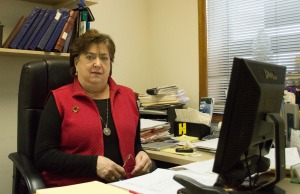The United States and Cuba are beginning the process of normalizing diplomatic relations, but you won”™t be ordering a mojito made with Cuban-distilled Havana Club rum for a while.
The two countries recently took the first step toward ending a U.S.-imposed trade embargo that began in 1960 and was strengthened during the Cuban missile crisis, with each side releasing prisoners and the U.S. government announcing changes in rules that restrict travel to the island nation. But that big first step, while meaningful, is just a step.
“I think in the short term, the impact is minimal,” said Jeanne Zaino, a professor of political science at Iona College in New Rochelle. “In the long term, there is potential for business in fields such as travel, commerce and agriculture.”

Zaino said a full opening of Cuba will take time.
“Does Cuba meet the points and guideposts the administration wants them to meet? If not, there will be a pullback,” Zaino said.
She noted that a lifting of the embargo would require congressional action, including the repeal of the Helms-Burton Act of 1996, which codified the embargo into law.
So don”™t expect boxes of Cuban cigars with famous names like Cohiba, Romeo y Julieta and Bolivar to be lining the shelves of the humidor at your Westchester or Fairfield county cigar shop next week.
“The news came out and everyone came in and said, ”˜Hey, we”™re getting Cubans!”™” said Josh DeSiena, the owner of Doc James Cigar Lounge in Mamaroneck. “I think it”™s the first step towards trade with them and Cuban cigars being legalized.”
But while visitors can now bring up to $100 in cigars back from Cuba, DeSiena said decades of over-farming and overproduction has hurt the industry on the island.
Since the revolution and nationalization of the country”™s cigar industry, DeSiena said, “They”™ve never let the soil rest, they never planted other crops to renew the soil”™s nutrients, and so the quality of the tobacco isn”™t as good.”
DeSiena said a customer who gets a Cuban cigar is still going to enjoy a great cigar.
“But they”™re not the best in the world anymore,” he said. “They”™re going to have to improve their quality control, and it”™s not clear how they”™ll respond to the demand when the U.S. market opens up.”
And consumers can”™t book plane tickets or hotels in Havana just yet.
“It”™s really too early to say conclusively, but we fully expect that travel to Cuba is going to become easier in the future, which will effectively open the country to more travelers,” said Tom Armstrong, corporate communications manager for Norwalk-based travel company Tauck Inc., in an email.
In the meantime, however, those who want to travel to Cuba have to apply to for a license issued by the U.S. Department of the Treasury”™s Office of Foreign Assets Control. Licenses are only issued for travel for specific purposes, such as journalistic activity, professional research and professional meetings, educational activities, religious activities, athletic and other competitions and exhibitions.
“I”™ve been booking Havana for people through companies that have the licenses,” said Mary McDonnell of Honey Travel in Rye. “This year, we”™ve booked six or eight. It”™s not a lot, but it is a lot for Cuba.”
Tauck runs educational tours to Cuba for Americans. The all-inclusive tours cost about $7,500 per person. Travelers get to meet the people of Cuba to share thoughts and insights, learn about their nation and their lives and connect with their cultural heritage, according to the firm”™s website.
“Our Cuba itinerary is already incredibly popular, and as a result we”™re expanding it from eight days to 13 days for the coming year,” Armstrong said. “A number of our 2015 departures are already sold out, and I wouldn”™t be surprised to see more of them filling up in the coming weeks and months.”
Cuba is one of the most popular tourist destinations in the Caribbean for Canadian travelers, as lower demand resulting from the U.S. trade embargo has kept prices affordable.
“What impact that influx of visitors will have on Cuba as a destination remains to be seen,” Armstrong said, referring to American tourists who will want to visit the island nation when the embargo ends. “Right now, Cuba has a sort of anachronistic charm, like you”™re stepping back in time to an earlier era. Hopefully that won”™t change.”

















Comments 2